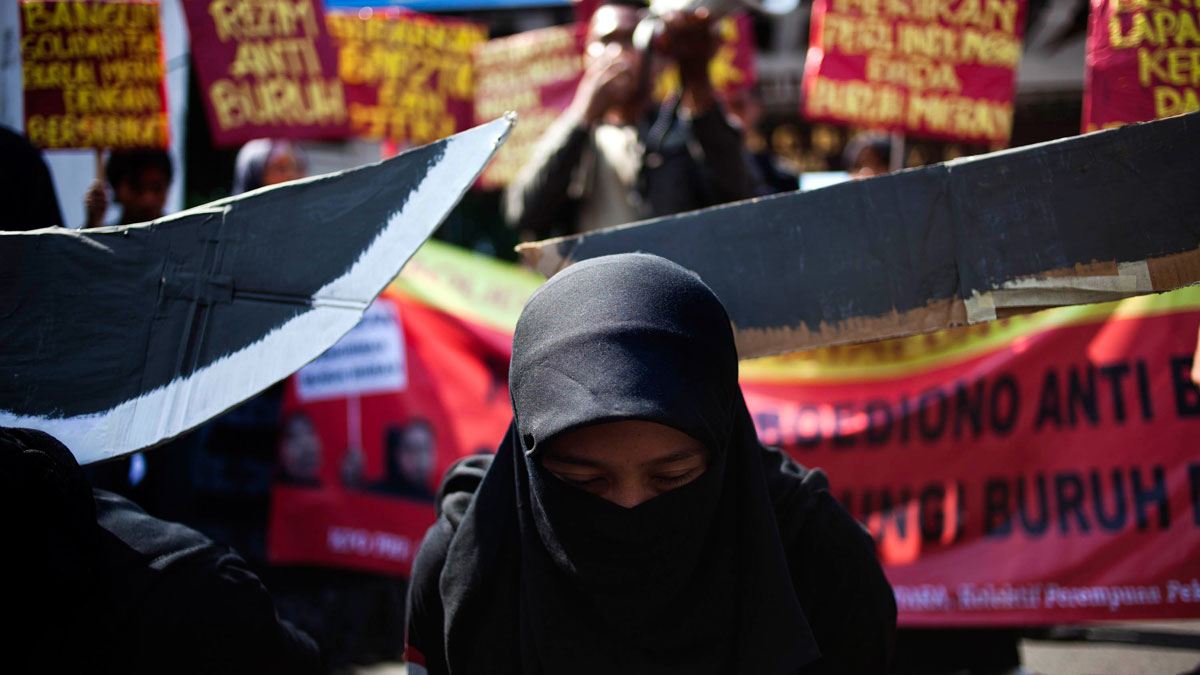Saudi Arabia 'executes one person every two days'
Rampant executions under King Salman's rule fuelled by justice system 'riddled with holes', says Amnesty

A free daily email with the biggest news stories of the day – and the best features from TheWeek.com
You are now subscribed
Your newsletter sign-up was successful
Saudi Arabia is executing prisoners on a massive scale and often without legal safeguards in place, Amnesty International has warned in its latest report.
The Muslim nation is one of the most prolific executioners in the world, and there has been a marked increase in state-sponsored killings since King Salman came to power in January.
Amnesty reveals that at least 102 people were executed in the first six months of this year alone - compared with 90 in all of 2014. Executions are taking place at the rate of one every two days.
The Week
Escape your echo chamber. Get the facts behind the news, plus analysis from multiple perspectives.

Sign up for The Week's Free Newsletters
From our morning news briefing to a weekly Good News Newsletter, get the best of The Week delivered directly to your inbox.
From our morning news briefing to a weekly Good News Newsletter, get the best of The Week delivered directly to your inbox.
Between January 1985 and June 2015, Saudi authorities executed at least 2,200 people, nearly half of whom were foreigners. Amnesty says many of them were denied adequate translation services and were forced to sign documents they did not understand.
Despite the government's insistence that the death penalty is only applied to the "most serious crimes", it has executed people accused of a range of offences including drug possession, apostasy, heresy and witchcraft.
Amnesty highlighted the case of two sets of brothers from the same family who were killed last year after being convicted of possessing large quantities of hashish. They claimed that they had been tortured and that their "confessions" had been obtained after they were beaten and deprived of sleep.
The country's Sharia law-based justice system lacks a criminal code and is "riddled with holes", leaving definitions of crimes and punishments vague and open to interpretation, allowing judges to hand down death sentences at their discretion, the organisation says.
A free daily email with the biggest news stories of the day – and the best features from TheWeek.com
"The use of the death penalty is horrendous in all circumstances, and is particularly deplorable when it is arbitrarily applied after blatantly unfair trials," says Said Boumedouha, Amnesty's acting Middle East director.
"The fundamentally flawed nature of Saudi Arabia's legal system leaves the door wide open for abuse. The authorities are toying with people's lives in a reckless and appalling manner."
-
 ‘This is something that happens all too often’
‘This is something that happens all too often’Instant Opinion Opinion, comment and editorials of the day
-
 House votes to end Trump’s Canada tariffs
House votes to end Trump’s Canada tariffsSpeed Read Six Republicans joined with Democrats to repeal the president’s tariffs
-
 Bondi, Democrats clash over Epstein in hearing
Bondi, Democrats clash over Epstein in hearingSpeed Read Attorney General Pam Bondi ignored survivors of convicted sex offender Jeffrey Epstein and demanded that Democrats apologize to Trump
-
 Epstein files topple law CEO, roil UK government
Epstein files topple law CEO, roil UK governmentSpeed Read Peter Mandelson, Britain’s former ambassador to the US, is caught up in the scandal
-
 Iran and US prepare to meet after skirmishes
Iran and US prepare to meet after skirmishesSpeed Read The incident comes amid heightened tensions in the Middle East
-
 Israel retrieves final hostage’s body from Gaza
Israel retrieves final hostage’s body from GazaSpeed Read The 24-year-old police officer was killed during the initial Hamas attack
-
 China’s Xi targets top general in growing purge
China’s Xi targets top general in growing purgeSpeed Read Zhang Youxia is being investigated over ‘grave violations’ of the law
-
 Panama and Canada are negotiating over a crucial copper mine
Panama and Canada are negotiating over a crucial copper mineIn the Spotlight Panama is set to make a final decision on the mine this summer
-
 Why Greenland’s natural resources are nearly impossible to mine
Why Greenland’s natural resources are nearly impossible to mineThe Explainer The country’s natural landscape makes the task extremely difficult
-
 Iran cuts internet as protests escalate
Iran cuts internet as protests escalateSpeed Reada Government buildings across the country have been set on fire
-
 US nabs ‘shadow’ tanker claimed by Russia
US nabs ‘shadow’ tanker claimed by RussiaSpeed Read The ship was one of two vessels seized by the US military